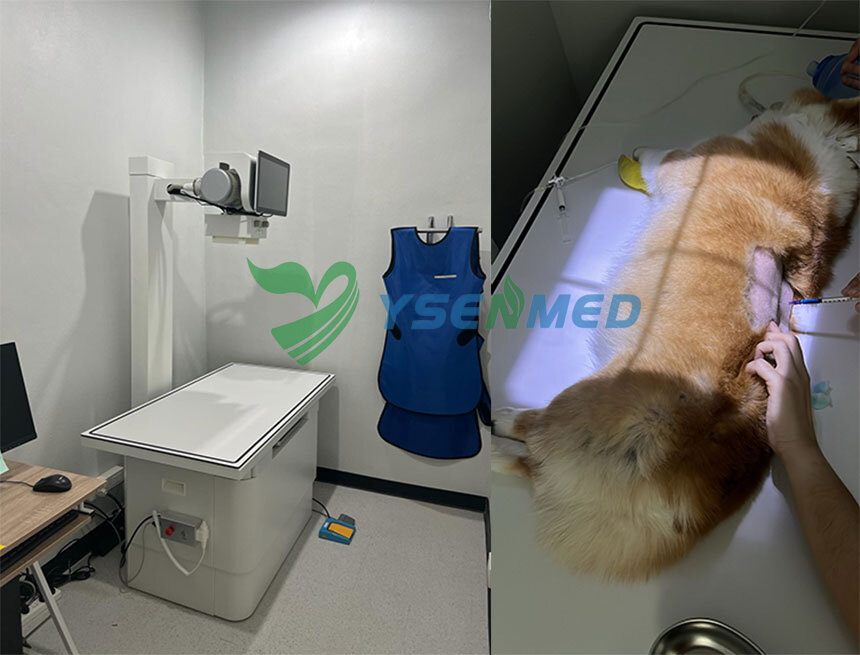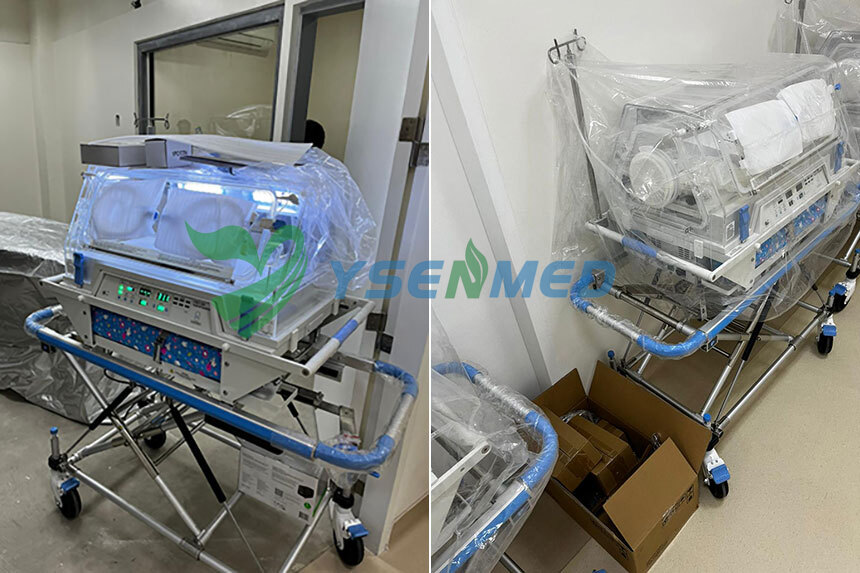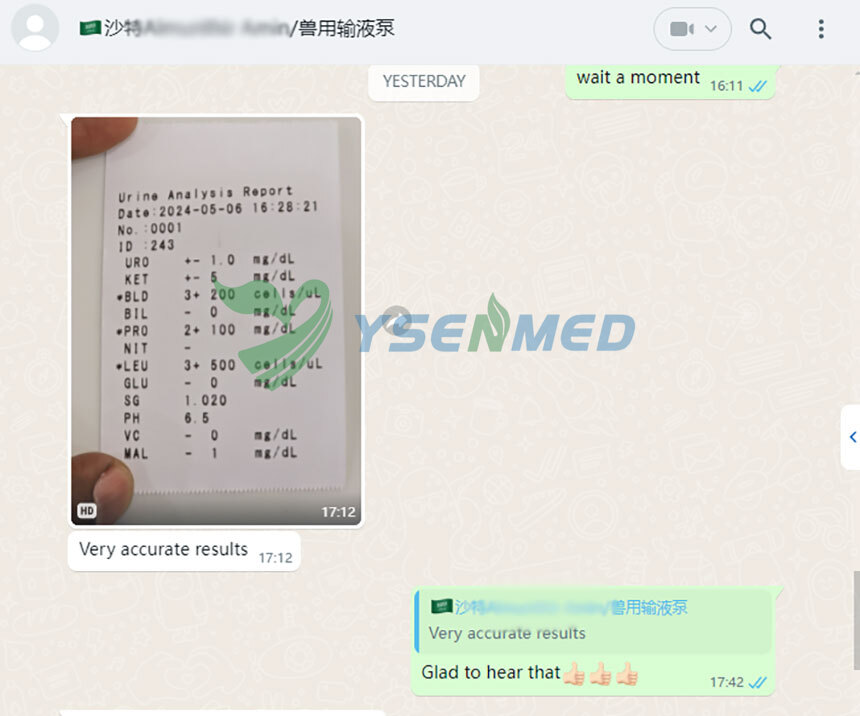Introduction:
Set the stage by emphasizing the critical role of electrolyte balance in emergency medicine.
Introduce the significance of rapid and accurate diagnostic tools, particularly electrolyte analyzers, in emergency situations.
Section 1: Overview of Electrolyte Imbalances in Emergency Care:
Provide a brief overview of common electrolyte imbalances encountered in emergency medicine.
Highlight the impact of these imbalances on critical physiological functions and patient outcomes.
Section 2: Importance of Timely Electrolyte Assessment:
Emphasize the importance of timely electrolyte assessment in emergency situations.
Discuss how rapid identification of electrolyte imbalances can guide treatment decisions and improve patient outcomes.
Section 3: Role of Electrolyte Analyzers in Emergency Medicine:
Explain the specific role of electrolyte analyzers in emergency medicine.
Discuss how these analyzers provide quick and accurate measurements of electrolyte levels, aiding in rapid diagnosis.
Section 4: Understanding Electrolyte Analyzers:
Provide a detailed explanation of how electrolyte analyzers work.
Explore the technology behind these devices, including ion-selective electrodes and other measurement techniques.
Section 5: Key Electrolytes Measured in Emergency Settings:
Discuss the key electrolytes measured by analyzers in emergency medicine, including sodium, potassium, chloride, bicarbonate, calcium, and magnesium.
Highlight the critical roles of these electrolytes in emergency care.
Section 6: Rapid Diagnosis of Dehydration:
Explore how electrolyte analyzers contribute to the rapid diagnosis of dehydration in emergency situations.
Discuss the importance of assessing electrolyte levels to determine the severity of dehydration and guide fluid resuscitation.
Section 7: Electrolyte Imbalances in Cardiac Emergencies:
Discuss the relevance of electrolyte analyzers in diagnosing and managing electrolyte imbalances associated with cardiac emergencies.
Explore how prompt identification and correction of these imbalances impact cardiac outcomes.
Section 8: Hyperkalemia and Hypokalemia in Emergency Care:
Examine the diagnostic value of electrolyte analyzers in identifying hyperkalemia and hypokalemia.
Discuss the immediate interventions guided by electrolyte levels in cases of life-threatening potassium imbalances.
Section 9: Hyponatremia and Hypernatremia Management:
Explore how electrolyte analyzers assist in managing hyponatremia and hypernatremia in emergency medicine.
Discuss the implications of sodium imbalances on neurological function and the importance of rapid correction.
Section 10: Chloride and Bicarbonate Levels in Acid-Base Disturbances:
Discuss the diagnostic significance of chloride and bicarbonate measurements in assessing acid-base disturbances.
Explore how electrolyte analyzers aid in identifying and managing acidosis and alkalosis in emergency settings.
Section 11: Calcium and Magnesium Assessment in Emergency Care:
Highlight the role of electrolyte analyzers in assessing calcium and magnesium levels in emergencies.
Discuss the impact of imbalances on neuromuscular function and the prompt interventions guided by electrolyte measurements.
Section 12: Pediatric Considerations in Emergency Electrolyte Analysis:
Discuss the specific considerations for using electrolyte analyzers in pediatric emergency care.
Highlight the differences in electrolyte balance and normal ranges in children.
Section 13: Integration with Point-of-Care Testing (POCT):
Explore the integration of electrolyte analyzers with point-of-care testing in emergency medicine.
Discuss how portable analyzers contribute to rapid bedside assessments and decision-making.
Section 14: Continuous Monitoring in Critical Care:
Discuss the potential for continuous electrolyte monitoring in critical care settings.
Explore how advanced analyzers contribute to ongoing assessment and early detection of dynamic changes in electrolyte levels.
Section 15: Addressing Challenges in Emergency Electrolyte Analysis:
Acknowledge and address challenges associated with emergency electrolyte analysis.
Discuss factors such as sample collection, rapid turnaround times, and the need for reliable results in critical situations.
Section 16: Comparative Analysis with Traditional Laboratory Methods:
Compare the diagnostic value of electrolyte analyzers with traditional laboratory methods.
Discuss the advantages of rapid point-of-care testing in emergency medicine.
Section 17: Technological Advances in Electrolyte Analysis:
Explore recent technological advances in electrolyte analyzers.
Discuss innovations that enhance speed, accuracy, and ease of use in emergency settings.
Section 18: Telemedicine and Remote Electrolyte Monitoring:
Discuss the role of electrolyte analyzers in telemedicine and remote emergency care.
Explore how portable analyzers contribute to remote monitoring and consultation.
Section 19: Training and Competency for Emergency Healthcare Providers:
Highlight the importance of training and competency among healthcare providers using electrolyte analyzers in emergency settings.
Discuss ongoing education and certification programs to ensure proficiency.
Section 20: Regulatory Compliance in Emergency Electrolyte Analysis:
Examine the regulatory landscape surrounding emergency electrolyte analysis.
Discuss compliance with quality standards, regulatory approvals, and the importance of ensuring safety and efficacy in critical care scenarios.
Section 21: Economic Considerations and Cost-Effectiveness:
Explore the economic considerations of implementing electrolyte analysis in emergency medicine.
Discuss the cost-effectiveness of rapid diagnostics in terms of improved patient outcomes and reduced healthcare expenditures.
Section 22: Global Accessibility and Challenges in Emergency Electrolyte Analysis:
Examine the global accessibility of emergency electrolyte analyzers.
Discuss challenges in resource-limited settings and initiatives aimed at improving access to this technology on a global scale.
Section 23: Public Awareness and Education:
Emphasize the importance of public awareness and education regarding the diagnostic value of electrolyte analyzers in emergencies.
Discuss initiatives aimed at educating the public about the role of rapid electrolyte testing in improving emergency care.
Section 24: Future Trends in Emergency Electrolyte Analysis:
Explore future trends and innovations in emergency electrolyte analysis.
Discuss ongoing research, potential breakthroughs, and the evolving landscape of these technologies in emergency medicine.
Conclusion:
Summarize the key points discussed in the article.
Emphasize the crucial role of
electrolyte analyzers in improving diagnostic accuracy, patient outcomes, and overall emergency care.




